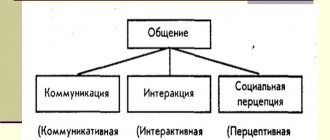Compliance with the ethics of business communication is the basis of a successful team. Relationships built on the rules of professional ethics and mutual respect create a comfortable working atmosphere and maintain motivation in the team. The article presents the basic principles of business communication ethics, tips and rules that will be useful to both employees and managers.
BUSINESS ETHICS: Rules, Norms and Basic Principles
To control oneself so much as to respect others as oneself, and to do unto them as we would have them do unto us, is what can be called philanthropy.
Confucius
- 1.What is it?
- 2.Rules and basic principles of ethics of business communication
- 3.Main types of business communication
- 4. Communication “superior-subordinate”
- 5. Communication “subordinate-boss”
- 6.Employee-employee communication
- BUSINESS ETHICS: Rules, Norms and Basic Principles
- How to behave at an interview to get hired?
- Nonverbal communication in business communication
- 10 phrases you shouldn't say to your employees
- I am responsible for everything! Or, how dangerous is hyper-responsibility?
What it is?
Business communication, like any other, needs regulation.
Business communication etiquette is a set of public and unspoken rules for those who have to work together every weekday. Without regulated norms, business communication turns into a chaotic exchange of information. Each person perceives the world around him, his colleagues, managers and subordinates in his own way.
To ensure that different worldviews do not interfere with work and force everyone to speak different languages, it is important to observe the etiquette and culture of business communication. This applies to both relationships within one team and external contacts (between employees of different departments or branches, between an employee and a client).
History of the issue
Labor ethics has a long and complex history of development, which is associated with the history of the development of labor. Here are the main stages to focus on:
- In barbarian times, the desire for creative work was viewed with contempt. The emphasis was on the art of war. The elite of society were landowners who kept slaves and were deprived of the need to work.
- In the ancient period, there was also no honorable attitude towards work. Thinkers and politicians were especially respected. There was an opinion about the natural baseness of people engaged in physical labor.
- There has been a reassessment of priorities in Christianity. It was believed that those who do not want to work are not worthy of food. An idle life was considered the gravest sin in early Christianity.
- In the era of the Reformation, the worthy position of work and the baseness of idleness only strengthened. Vagrancy was condemned at the legislative level. The transformation and decoration of life was considered a moral duty.
- During the era of romanticism, the first steps towards capitalism were taken. It was not so much the labor itself that had value, but rather the opportunity and ability to earn material values.
- Capitalism emphasizes the value of entrepreneurial ability.
- The Protestant ethic implies high quality of work.
Rules and basic principles of business communication ethics
Ethics in business communication has a primarily practical purpose .
Compliance with it greatly simplifies the work of the entire team as a whole and each employee in particular, since acting in accordance with generally accepted patterns is easier and faster. This will ensure that employees know what to expect from each other. This step helps improve overall productivity by freeing employees from thinking like, “What did he mean?” The second task of business ethics is to create a working atmosphere in the team in which all the time is devoted to business, and the right amount of time is given to fun. Moral comfort plays a larger role in life than physical comfort, and by following business ethics, employees will always feel comfortable in terms of job satisfaction.
Moreover, the moral side of business ethics also affects productivity: an employee who feels comfortable in the workplace will be more committed to the company and will strive to do his job better. A pleasant atmosphere, achieved through adherence to ethical principles of business communication, makes employees strive for excellence in their work.
We offer for viewing a video review of 5 basic rules of etiquette in business communication according to D. Carnegie:
How to join a new team
The hardest thing is for new people in the team. At first they are always treated with caution, they are not trusted with important projects and generally question their professional suitability. Such a negative attitude is not at all the norm. With a favorable atmosphere in the team, a newcomer is helped to get comfortable in a new place and introduced to the company's affairs.
You shouldn’t expect a warm, welcoming welcome when it comes to your first day at a new job.
First impressions leave a lasting impression on people. Therefore, you need to properly prepare for this event.
Every team has an unspoken set of rules. But there are also universal ones.
- Nobody likes upstarts. You should not boast about your knowledge, financial situation, acquaintances and other similar things.
- It is necessary to start building relationships with colleagues from day one. It's better to be friendly and smile back at people. You should not create the image of a loner or an overly serious person.
- There is no need to complain or express your dissatisfaction with the company's work. This is unlikely to please the people who have been working here for years.
You can bring your colleagues a symbolic treat for tea. You should not organize a feast in honor of your employment, as this may be misinterpreted.
Basic types of business communication
There are three main types of business communication, they are based on the generally accepted hierarchy within the team.
So, business communication can take place:
- "Top down";
- "Down up";
- "Horizontally".
There are different ethical standards for business communication for these three categories, although there are general principles. First of all, the general principles include respect for the employee , regardless of the latter’s role in the company.
It is important to be fair to employees, colleagues from other companies and clients with whom you work. This, for example, implies that it would be unethical to ask your interlocutor about his personal affairs, especially about his problems, just because it interests you.
The rules that are common to all also apply to the etiquette of business communication over the phone . “Hello” or “yes” are inappropriate greetings for a business person. You should politely introduce yourself, state your position, the name of the company, department.
When talking on the phone, you need to be careful; if this is your first time talking to a person, be sure to remember his name and patronymic and use them. You should always express your thoughts clearly and concisely. If, for good reasons, you cannot maintain a conversation, you need to apologize to the interlocutor and offer to contact him later.
The task of the authorities
What is the task facing the boss? Any leader, knowing the basic rules of behavior in a team, must first of all be demanding of himself and set an example for his subordinates. He needs to clearly and competently set tasks for his subordinates, and also explain what the result should be. If a junior colleague copes with the task without comments and on time, then the manager needs to encourage the employee. Moreover, the more merit, the greater the reward.
If a subordinate fails to complete the intended task, then when criticizing him, one should not become personal. Reasonable criticism should concern only business matters and should not interfere with the personal life of an employee.
The boss faces another task - protecting his employees from their superiors. He needs, if possible, to protect his subordinates both from the company’s management and from outside attacks.
Communication "superior-subordinate"
The boss is “higher” than the subordinate
Or "top to bottom". Any good leader should try to create a comfortable atmosphere in the team. It is the self-discipline of a leader that is the most powerful motivator and example for subordinates.
Therefore, it is first of all important for people holding leadership positions to comply with the ethical rules of business communication.
Advice: The effective work of the entire company begins with the self-discipline of the leader. Only by learning to manage yourself can you manage other people. Familiarity, being late, and postponing decisions “for later” should disappear from habits. All this will help strengthen your authority and win the favor of your employees - everyone wants to strive for a bright future with an ideal leader.
The manager is the one who manages the work process and gives orders. You can do this in several ways, including:
- Order;
- Request;
- Question or request;
- Call for a volunteer.
An order is a strict form of instruction .
Orders should not be abused, but in a good way – they should be avoided altogether. Most often, direct orders are used in relation to unscrupulous employees in critical situations. But if it comes to problems and orders, think about what good such an obviously conflicted employee can bring to the company? A request is the most common form of order , especially if the team has already established a fairly trusting working relationship. In response to a request, the employee can give his comment if necessary. The manager can also present the request in such a way that it is equivalent to an order, while the tone remains friendly.
The question is usually asked to those employees who have shown themselves to be competent and proactive people, the same applies to calling a volunteer.
Advice to the manager: it would be a good idea to study your subordinates to find out which of them adequately perceives questions. For example, a qualified subordinate who is enthusiastic about his job and has earned the trust of his manager can give good advice on how to solve a particular problem. An employee who is uninitiative and unscrupulous is more likely to see the issue as a weakness of the manager and a reason to shirk work.
Also, subordinates always value fairness . So the reward should always be adequate to merit, just as the punishment is adequate to failure. At the same time, the mistakes of employees should not be left completely unattended - such behavior can show the manager as inattentive or tell the employee that he can work carelessly, shirk and go unpunished.
Among other things, the boss must show his subordinates that he respects and values their opinions and contributions to the common cause, and in this case he will achieve reciprocal loyalty.
Relationships between colleagues
Each employee must treat other team members with respect. To do this, you need to find the right tone of communication. He must be friendly and benevolent, otherwise the relationship will be broken. The rules of human behavior in a team, especially in a work environment, should be primarily aimed at a fruitful, creative approach to business and a friendly environment.
Let's look at some cases when a new leader comes to the team. How much will he be able to manage the new society and will he be able to avoid annoying mistakes?
Communication "subordinate-boss"
Subordinate and boss
Of course, all subordinates must follow the rules of business communication. A good employee, like a manager, is interested in establishing and maintaining a comfortable atmosphere in the team, therefore, within the framework of the ethics of business communication, one of the tasks of a subordinate is to help the manager maintain it.
Under no circumstances should a subordinate try to manage his manager; this is a manifestation of disrespect, non-compliance with hierarchy and, accordingly, a violation of the norms of ethical business communication. Subordination should always take place: you can express your opinion in a correct form, but you cannot point it out to your boss. By the way, in this case, the ethics of network communication is no exception. It may seem that in online correspondence some of the rules of ethics can be neglected, but this is not so. There is still a boss on the other side of the screen, and you need to behave with him accordingly.
It is not recommended to be categorical with your boss. It is not necessary to always agree with him, otherwise you may seem like a flatterer. But you shouldn’t constantly argue with management. Here it is important to find a fine line and show that the subordinate respects the leader, has an inner core, and a strong character. Such employees are valued and trusted as loyal and reliable people.
I always ask helpers to share their difficulties; I always try to support them, of course, if they are ready to admit that they have problems. J. Soros
If the company has senior management, then you should not contact them without going through your immediate superior. This is a direct demonstration of disrespect for the leader; this can cast doubt on the manager’s competence, which can negatively affect relationships within the entire team.
It would be reckless not to mention the main weapon of some employees - lies . If an employee allows himself to lie in the workplace, promise to complete all tasks (with subsequent failure), talk about how he did something that he actually did not do, it is rare that a manager will deny himself the pleasure of getting rid of such an assistant. Honesty and trust are the basis of business communication. Adhering to these principles, an employee can go even further than planned, but if you try to be cunning, then you only have yourself to blame.
What should a leader be like?
It is known that the chances of success are greater for those who are endowed with charm or, as they say now, charisma. For a boss, charisma can be defined as the following:
- pleasant, impressive appearance and loud voice;
- energy, preferably even increased;
- the presence of any distinctive abilities;
- personal charm, friendliness;
- ability to lead a team and lead people.
The rules of behavior in a team are different, therefore, when joining a new team, the boss must carefully monitor the reaction of each employee. The sooner he understands who is the formal and informal leader in the team, who shapes public opinion, who plays the role of a “gray eminence,” the easier it will be for him to fulfill his duties in the future.
Causes of conflict behavior
- Difference of opinion. It is a conflict between the ability to narrow down the number of possible solutions to a problem by applying logic and knowledge and thinking outward.
- Position. This is a situation where the wrong person is promoted.
- Inconsistency. The employee is required to engage in activities that do not meet his needs or interests.
- Incompatibility. Someone adheres to goals and views that do not correspond to the worldview of another and exclude the satisfaction of his professional needs and desires.
- Economy. Insufficient employee benefits.
- Stress. Conflicts from stress from external sources.
- Poor or inadequate organizational structure and lack of teamwork.
- Power. Often a conflict for power occurs when several people apply for a leadership position.
- Weak leadership. Conflict is inevitable when someone supervises a more qualified and experienced employee.
- Arbitrary interpretation and application of rules and policies. Lack of transparency and openness causes dissatisfaction among employees.
Styles of conflict
In order to understand how to resolve a particular conflict, you need to have an understanding of conflict styles.
- Competition is a style that places one's own needs above the needs of others. He relies on an aggressive communication style. Those who use a competitive style seek to control the discussion. They fear that losing control will lead to decisions that do not meet their needs. Competition, as a rule, leads to retaliatory measures, aggravation of the situation and increased tension in the team.
- Accommodation, also known as smoothing, is the opposite of competition. People who use this style defer to others while trying to be diplomatic. They tend to allow the group's desires to suppress their own, which are rarely discussed at all because maintaining the relationship is a priority.
- Avoidance is a common reaction to a negative attitude towards conflict in general. Conflict avoiders think that if they don't bring up the issue, things will go away on their own. But, as a rule, feelings are suppressed, opinions remain unexpressed, and the conflict grows until it can no longer be ignored. Because grievances remain unexpressed and relationships inevitably deteriorate, the other party often does not even understand what happened.
- Compromise is an approach to conflict in which people discuss their desires and reach an agreement. Although compromise is the best solution, it is usually unsatisfying. Each side is still committed to its own views and does not always understand the other side well enough.
- Collaboration is the coming together of individual needs and goals to achieve a common goal. Often referred to as win-win problem solving, collaboration requires communication to achieve an optimal solution. Collaboration provides the opportunity to reach consensus, integrate needs, and potentially exceed the capacity budget that previously limited conflict.
By understanding each style and its consequences, you are more likely to resolve conflict in the most appropriate way:
- If a competing style is used, others may be forced to accept a “convenient” decision, but this acceptance may be accompanied by resentment.
- If we adapt, the relationship can be good, but there remains disappointment that our opinion is not taken into account.
- If we compromise, then good relations will remain, but grievances may remain for a long time.
- If we collaborate, we are likely to be more confident in our chances of working together productively and maintaining a healthy relationship.
- And if the conflict is not discussed at all, both sides may remain in the dark about the real issues and problems, which is the worst case scenario, because sooner or later the conflict will escalate.









